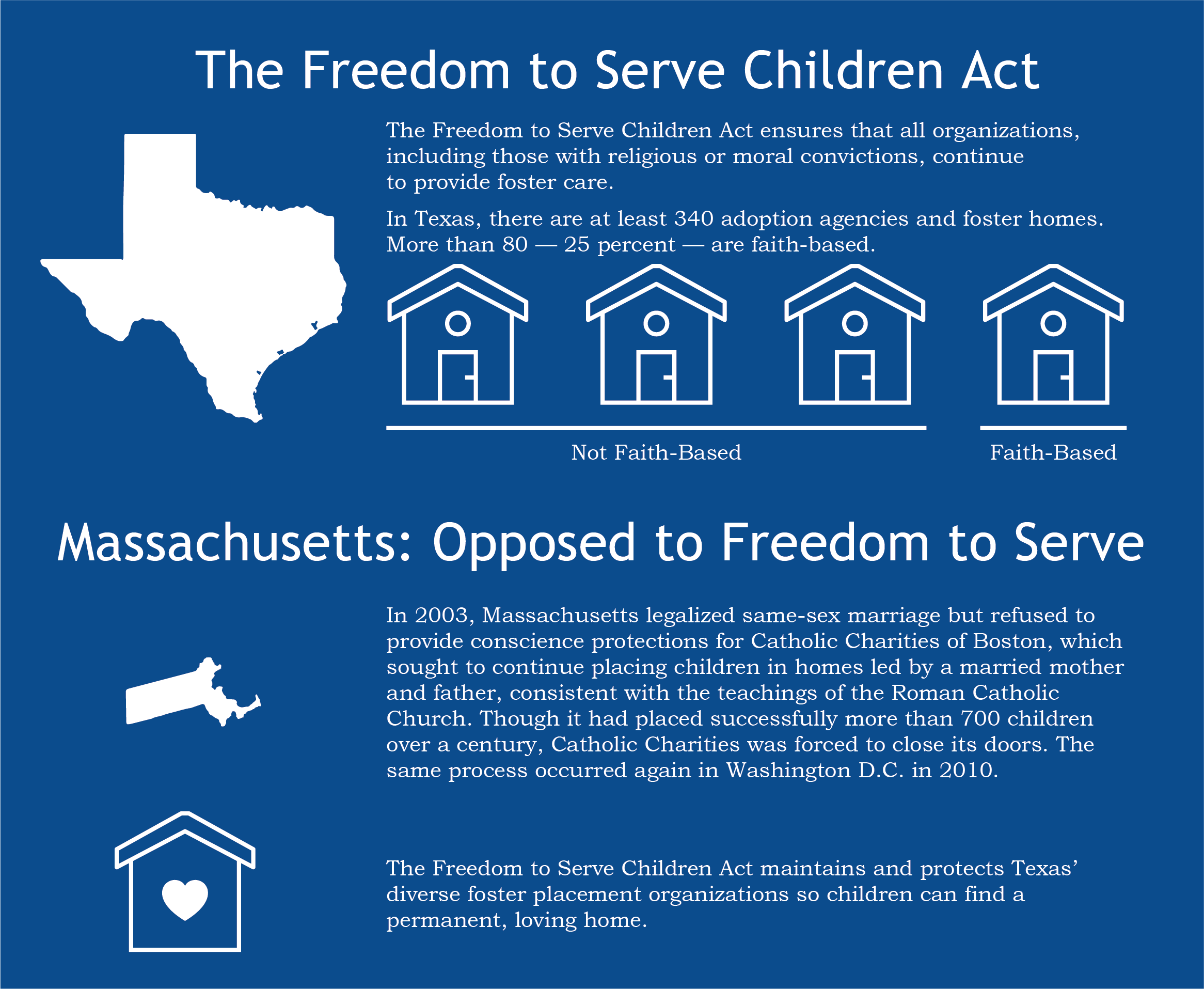Protecting foster care providers
Produced for the 85th Texas Legislative session (2017)
 Since 1727, Catholic religious orders, parishes, and charities have provided aid to orphans in the newly forming United States of America and its territories. Shortly after the Louisiana purchase, the Ursuline sisters of New Orleans wrote Thomas Jefferson asking if they would be able to continue their mission to orphans as Catholic sisters in “these new United States.”
Since 1727, Catholic religious orders, parishes, and charities have provided aid to orphans in the newly forming United States of America and its territories. Shortly after the Louisiana purchase, the Ursuline sisters of New Orleans wrote Thomas Jefferson asking if they would be able to continue their mission to orphans as Catholic sisters in “these new United States.”
President Jefferson assured the sisters of the government’s patronage and his protection of their charitable work, even though the territory was no longer part of Catholic France, and he included a donation of financial support for the benefit of the charity.
In Texas, the Sisters of Charity of the Incarnate Word began serving orphans in San Antonio and Galveston in 1866. For more than 150 years, our adoption and foster care services have been integral in serving abused and neglected children in our state. However, public-private partnerships have eroded as religious exercise becomes increasingly burdened by evolving misinterpretations of natural rights.
The reform efforts sought by the 85th Texas legislature rely heavily on private and faith-based providers for success. This strategy leverages the Church’s deep community relationships and mission-based commitment to care for children. HB 6 utilizes this strategy through the transfer of case management services to community providers who are in more frequent and personal contact with affected families.
Our foster care providers have been strong partners in foster care service delivery, parent recruitment, respite care, and support programs. Our professional staff are in much more frequent contact with families, recognizing issues and concerns more swiftly than state case workers. We strongly support the partnership between our charities and the state of Texas.
However, we have serious concerns about unintended consequences related to conscience protections. These concerns rise from the experiences of our institutions as targets of litigation in these areas.
We strongly urge legislators to address these concerns with clear conscience protection additions.
Conscience Protection
HB 6 calls for increased capacity for the foster care system by encouraging collaboration with foster care providers, faith-based communities, and advocate groups. The Governor, Lt. Governor and Speaker recognize a critical part of redeeming our foster care system is to enlist the help of religious leaders and faith-based providers. It would be tragic if the reforms did not allow us to provide this help in accordance with the very values that make our assistance so essential to the legislation’s success. Therefore, reforms must protect our free exercise of religion by providing conscience protections. This will safeguard Catholic charities so they do not facilitate abortion or place children with same-sex couples.
HB 3859/SB 892 provides conscience protections to ensure that child welfare providers who act based on sincerely held religious beliefs are not discriminated against in grants or ability to provide child welfare services.
Conscience protection will allow faith-based providers to continue to be a safe and loving refuge for children in crisis and to accompany them on their journey to healing and wholeness, breaking the cycle of abuse and neglect one child at a time.


